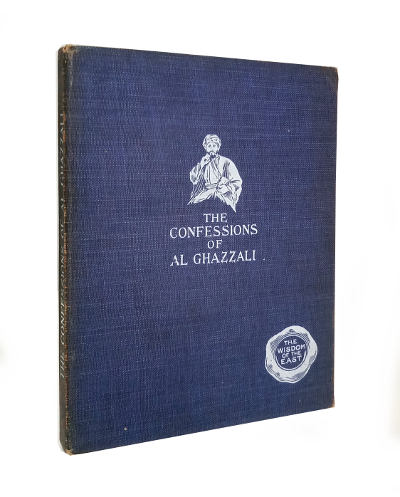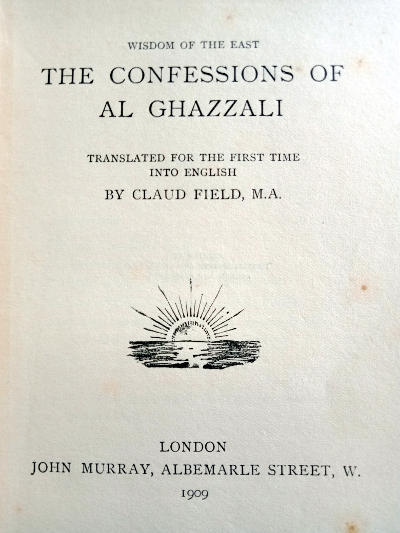The spiritual autobiography of the Muslim saint Al-Ghazali, whose original title is Deliverance From Error.
About the book (from Wikipedia):
The autobiography al-Ghazali wrote towards the end of his life, Deliverance From Error, is considered a work of major importance. In it, al-Ghazali recounts how, once a crisis of epistemological skepticism had been resolved by “a light which God Most High cast into my breast … the key to most knowledge,” he studied and mastered the arguments of kalam, Islamic philosophy, and Ismailism. Though appreciating what was valid in the first two of these, at least, he determined that all three approaches were inadequate and found ultimate value only in the mystical experience and insight (the state of prophecy or nubuwwa)[citation needed] he attained as a result of following Sufi practices. William James, in Varieties of Religious Experience, considered the autobiography an important document for “the purely literary student who would like to become acquainted with the inwardness of religions other than the Christian” because of the scarcity of recorded personal religious confessions and autobiographical literature from this period outside the Christian tradition.
About Al-Ghazali (from Wikipedia):
Al-Ghazali was a Persianphilosopher who was one of the most prominent and influential philosophers, theologians, jurists, logicians and mystics of Sunni Islam.
His works were so highly acclaimed by his contemporaries that al-Ghazali was awarded the honorific title “Proof of Islam” (Hujjat al-Islām).
Al-Ghazali believed that the Islamic spiritual tradition had become moribund and that the spiritual sciences taught by the first generation of Muslims had been forgotten.This belief lead him to write his magnum opus entitled Iḥyā’ ‘ulūm ad-dīn (“The Revival of the Religious Sciences”). Among his other works, the Tahāfut al-Falāsifa (“Incoherence of the Philosophers”) is a significant landmark in the history of philosophy, as it advances the critique of Aristotelian science developed later in 14th-century Europe.



